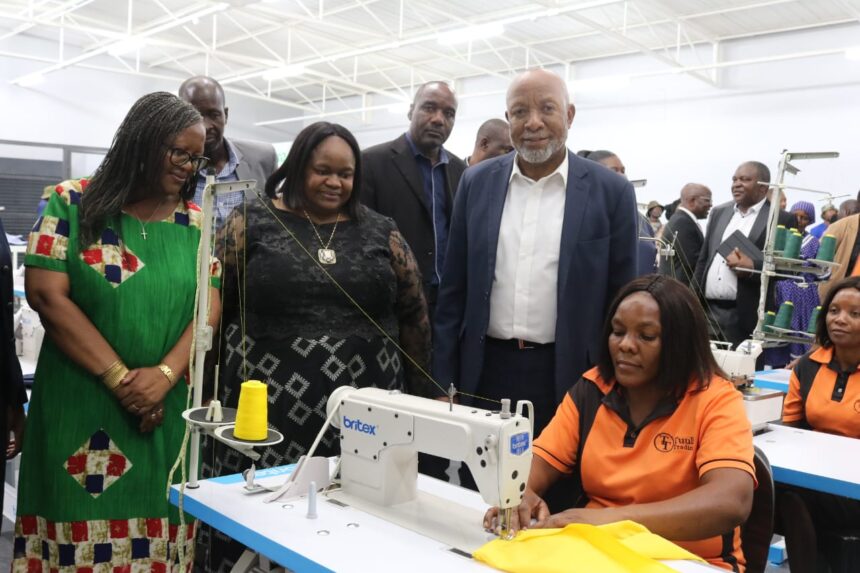Edgar Brandt and Stefanus Nambara
NKURENKURU – A school uniform manufacturing factory opened in Nkurenkuru, constituting an investment of N$3 million, and is the government’s latest effort to ensure vital market access for local producers. The aim is to eventually lease the factory, which was officially opened this week, to local SME cooperatives who would then foot the bill for day-to-day operations while producing a range of textile products, from school to military uniforms, for local and international markets.
Vice President Nangolo Mbumba, who officiated at the ceremony, said government has identified the clothing and garment industry as one of the sectors with potential to employ more people, especially women and the youth.
“This is because the sector offers entry-level jobs for low-level or unskilled workers. The sector also has a low investment cost in acquiring modern production technologies, compared to other sectors,” he noted.
This prompted decisions to be made at both policy and investment levels to support the development of the domestic textile and clothing industry. In 2013, Cabinet took a decision to phase out the sourcing of school uniforms outside Namibian borders to pave the way for locally-produced school uniforms.
“From a policy perspective, Cabinet instructed the then ministry of education and the ministry of industrialisation that school uniforms should be sourced locally, and that the importation of such uniforms should be phased out,” said Mbumba.
“It is crucial to appreciate the question as to why this policy looked at school uniforms. The Namibian school uniform market is dominated by imports mainly from South Africa, India and China, and it represents a market share of about 90% of school uniforms and sports attire in Namibia being traded in local retail shops.”
On her part, industrialisation and trade minister Lucia Iipumbu highlighted that the ministry is committed to ensuring real growth at home. She reiterated that the ministry aspires to ensure that local entrepreneurial productive capacity is enhanced through local and international market access.
“And we hope that in some time to come, we are going to be self-reliant, especially in terms of the manufacturing of school uniforms,” the minister added. She indicated that this project is the first initiative the ministry is undertaking under these circumstances, and remains hopeful that within the near future, it will be able to roll out the project to all other regions.
Speaking to New Era about the new textile factory yesterday, deputy executive director in the trade ministry Michael Humavindu explained that due to the cooperative nature of the factory, it has the capacity to employ up to 80 people. He, however, expressed concern about the continued reluctance in terms of local procurement from both the public and private sectors to support the burgeoning textile industry, which has been identified as a “low-hanging fruit” due to its notable employment and export potential.
He also clarified that as Namibia operates within the framework of both SACU and SADC, the trade policy would have to be amended to completely phase out the importation of school and other uniforms. However, discussions are ongoing to limit a specified percentage of uniform imports for a pre-determined period to support the growth of local companies. Meanwhile, as part of government’s decentralisation programme, the ministry also opened its Kavango West regional office at Nkurenkuru to bring services closer to the residents of the region. For years now, those in need had to travel to Rundu in the Kavango East region to access services rendered by the ministry.


